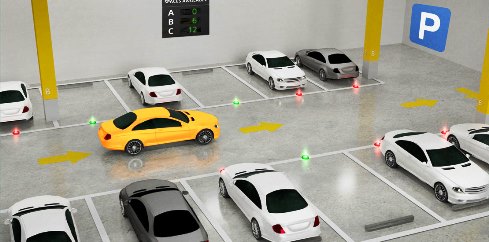Noise pollution in cities is decreasing dramatically thanks to smart parking – did you know that vehicular noise contributes up to 55% of total urban noise?
RELATED: Household internet access in urban areas twice as high as in rural areas
Team International Drivers Association believes you’d find this intriguing given the keen interest in Urban Planning and Smart Cities.
Smart parking quiets urban noise
The crescendoing din of honking cars, the ceaseless growl of engine revs, and the persistent pattern of pedestrians once epitomized urban life. Today, city dwellers experience a captivating quietude, a resonance that permeates through the concrete jungles as urban noise levels plummet. This compelling silence owes its existence to an unexpected hero: smart parking.
An Unforeseen Silencer: Smart Parking
Traditional parking methods have long contributed to escalating noise pollution levels in urban locales. Drivers endlessly circle streets in search of parking spots, igniting furious honking matches and ramping up engine noise. Smart parking has quietly dwelled in the shadow of bigger tech giants yet emerges as a disruptive force in noise reduction.
Smart parking systems use sensor technology and data analysis tools to provide real-time information about available parking spaces. Drivers can then swiftly locate and park their vehicles without contributing to traffic congestion and noise pollution.
Julianna Marshall, a travel expert at the International Drivers Association, concisely expressed, “Smart parking is not just about decluttering traffic flow. It’s an underestimated giant creating quieter urban habitats. It’s the urban lullaby cities didn’t know they needed.”
Features and Facts: Smart Parking at a Glance
As smart parking deftly traverses from tech shadow to limelight, understanding its various facets is essential. Here are some notable features and facts about this innovative technology:
- Sensors and IoT Devices: In-ground, ultrasound, or infrared sensors detect available parking spots. They transmit data to IoT devices for processing and analysis.
- Real-time Information: Smart parking apps provide real-time information about available parking spaces, pricing, time limits, and restrictions.
- Pre-booking Options: Some systems allow drivers to reserve parking spaces in advance, thereby reducing the need for time-consuming searches.
- Enhanced Efficiency: By streamlining the parking process, smart parking systems enhance traffic flow and decrease fuel consumption, noise, and air pollution.
According to Marshall, “Urban areas must embrace smart parking. It’s not just about parking ease; it’s a stepping stone to quieter, cleaner, and smarter cities.”
Connecting Silence and Smart Parking
Forming the connection between silence and smart parking might seem like drawing a long bow. Countering this point, Marshall said, “Noisy cities are often choked cities. Ease the chokepoints, and you ease the noise. Smart parking does just that – it fluidizes traffic, cuts down the circling for parking spots, and with that, reduces noise pollution tremendously.”
Stepping into Quieter Future Cities
The modern world has accustomed itself to the omnipresent humming of city life. Shattering this norm, smart parking promises a path to tranquil urban living, disrupting noise patterns, and reshaping city soundscapes. Question is, are we ready to adapt to this new tranquility and accept these silent cities?
“Embrace the quiet,” Marshall advises, “Urban silence is not an absence of life; it’s a presence of peace. Smart cities are not just about smart solutions; they are about smarter living.”
And it seems, smarter living begins with a quiet parking spot.





























